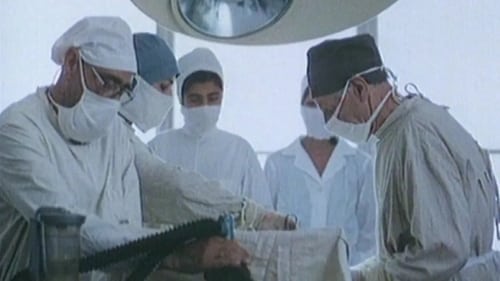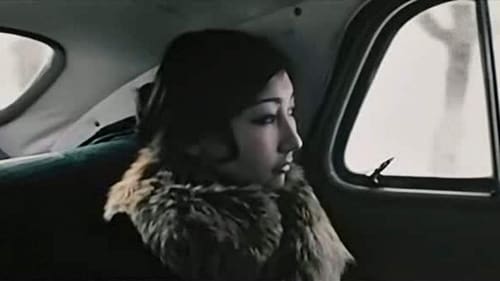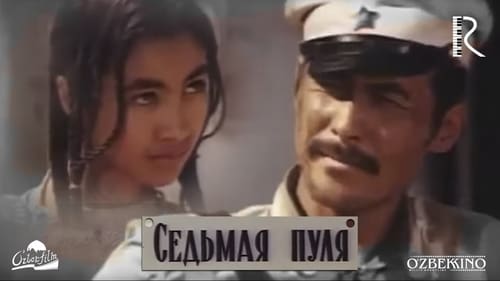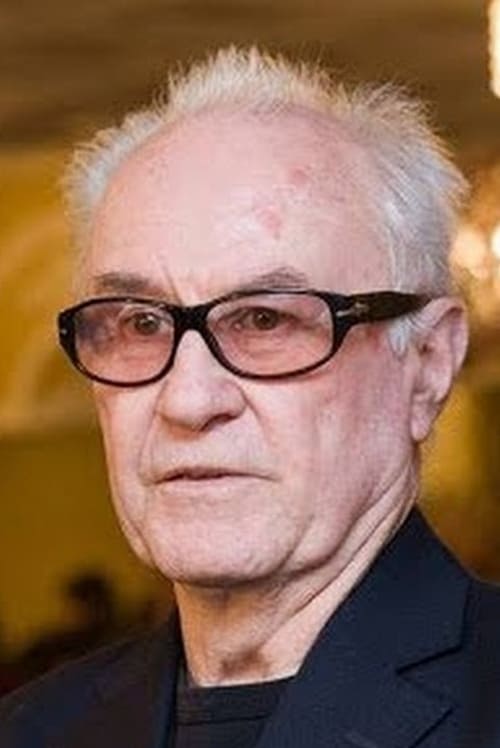Ali Khamraev
Birth : 1937-05-19, Tashkent, USSR (Uzbekistan)
History
Ali Khamrayev is an Uzbek film actor, director, writer, and producer, best known for his documentaries and feature films in the 1960s and 1970s in the former Soviet Union.

Self
After the release of "Nostalgia", Andrei Tarkovsky runs out his Soviet authorities permission to work abroad: he has to go back home. But he understands from the messages of some friends and colleagues that his life in Russia would be even tougher than before. So he then decides to break with Soviet authorities and, a year before the Milan Conference of 1984 during which he will announce publicly his decision, he leaves his friends that are hosting him in Rome and takes refuge in a secret location.

Screenplay
The story of the short but brilliant life of Ergasha Khamraeva, actor and playwright of the Soviet cinema who laid the foundations of the new art in Uzbekistan. The film is dedicated to those who fell during the Great Patriotic War.

Director
The story of the short but brilliant life of Ergasha Khamraeva, actor and playwright of the Soviet cinema who laid the foundations of the new art in Uzbekistan. The film is dedicated to those who fell during the Great Patriotic War.

Director
Группа неудачливых артистов собирается вокруг одного человека, одержимого идеей создания нового театра. Бригада артистов едет в поездку по городам с антрепризой. В бригаде нет известных артистов, и поэтому бригадиру приходится немало потрудиться, чтобы собрать зал. В ход идет все: объявления в афише с последующим заявлением, что звезда не приехала в последний момент, готовность, в зависимости от обстоятельств и вкуса местной публики играть спектакль в любом жанре - от трагедии, до фарса, включая ужастик, детектив и т.д.

himself
Film about the work of Ukrainian film director Kira Muratova.

Director
Two barbarians in the desert find a stranded white woman and regard her as their property. A strange and exotic parable that presents a tragic three-cornered relationship in a politically incorrect and ironic way.

Consulting Producer
Tashkent, 1942. At this time, the hospitable city became a refuge for tens of thousands of people tired of hunger and cold war years. In urban stores, warehouses and markets in abundance of food and other goods. All this attracts the attention of criminals of different stripes, who in search of easy money gathered in Tashkent from all over the vast country. There are several criminal groups here. At the beginning of summer in the city there is a new gang operating with special impudence and cruelty…

Director
Directed by Ali Khamraev.

Director
The film is set during the last summer before the Great Patriotic War. Three sisters are coming to stay with their grandmother in the village. They imagine the world as a vast and charming "Garden of desires" and all members of the household are waiting for Asya's birthday. Asya has a sense of foreboding regarding the impending grief. Guests come to visit but none of them are her parents. She still does not know that her father was declared an enemy of the people, that tomorrow she will not see her mother and that the war is approaching.

Writer
A romance by Ali Khamraev with musical numbers interspersed

Director
A romance by Ali Khamraev with musical numbers interspersed

Writer
A dying woman’s wish sends her son on a train journey from the steppes of Uzbekistan to the Russian hinterland in search of his father’s grave. Just as the traveler’s home city of Samarkand is situated on the border between East and West, Khamraev balances his film on the edge of two cultures, evoking the soul of Russia and the crumbling beauty of what was once the Silk Road.

Director
A dying woman’s wish sends her son on a train journey from the steppes of Uzbekistan to the Russian hinterland in search of his father’s grave. Just as the traveler’s home city of Samarkand is situated on the border between East and West, Khamraev balances his film on the edge of two cultures, evoking the soul of Russia and the crumbling beauty of what was once the Silk Road.

Director
A Russian doctor is invited to work at Afghanistan's top hospital during the war, and sees firsthand the carnage caused by the Islamist mujaheddin as they attempt to overthrow the socialist government.

Director
This intriguing mixture of melodrama and politics is not divided into three parts; the title instead refers to three female characters whose lives intersect in a small town in northern Uzbekistan during the difficult days following World War II. The first is an old woman trapped in a forced marriage; the second is a schoolteacher imposing progress on the remote region; the third, and most important, is Khalima (Kambarova), an illiterate but determined young woman who resolves to build her own house without either her husband's or the state's approval. The film's harsh vision of life in postwar Uzbekistan, as well as its ambivalent attitude toward the conflicting demands of individualism and collectivism, made it the object of official disapproval.

The setting is Central Asia during the Russian civil war. In the post-revolutionary twenties, when the power in European Russia was (officially) "fully in the hands of the workers and peasants", but the fight against the Basmachi rebels was in full swing. When a Red Army detachment captures Sultan Mazar, the brains behind the Bazmachi contingent, a decision is made to escort urgently the prisoner to the Bukhara province. The difficult mission is entrusted to a grizzled mountain trapper and conscientious revolutionary called Mirzo. His expertise is essential to traverse the precarious paths and steep mountain ridges along the way, impossible terrain for the inexperienced. A group consisting of Mirzo, his brother Kova, the Sultan, his daughter Zaranghis and slave Saifulla set off on this journey. They are forced to fight on the mountain ridges as well as negotiate the natural dangers and harsh elements.

Writer
The setting is Central Asia during the Russian civil war. In the post-revolutionary twenties, when the power in European Russia was (officially) "fully in the hands of the workers and peasants", but the fight against the Basmachi rebels was in full swing. When a Red Army detachment captures Sultan Mazar, the brains behind the Bazmachi contingent, a decision is made to escort urgently the prisoner to the Bukhara province. The difficult mission is entrusted to a grizzled mountain trapper and conscientious revolutionary called Mirzo. His expertise is essential to traverse the precarious paths and steep mountain ridges along the way, impossible terrain for the inexperienced. A group consisting of Mirzo, his brother Kova, the Sultan, his daughter Zaranghis and slave Saifulla set off on this journey. They are forced to fight on the mountain ridges as well as negotiate the natural dangers and harsh elements.

Director
The setting is Central Asia during the Russian civil war. In the post-revolutionary twenties, when the power in European Russia was (officially) "fully in the hands of the workers and peasants", but the fight against the Basmachi rebels was in full swing. When a Red Army detachment captures Sultan Mazar, the brains behind the Bazmachi contingent, a decision is made to escort urgently the prisoner to the Bukhara province. The difficult mission is entrusted to a grizzled mountain trapper and conscientious revolutionary called Mirzo. His expertise is essential to traverse the precarious paths and steep mountain ridges along the way, impossible terrain for the inexperienced. A group consisting of Mirzo, his brother Kova, the Sultan, his daughter Zaranghis and slave Saifulla set off on this journey. They are forced to fight on the mountain ridges as well as negotiate the natural dangers and harsh elements.

Director
Man Follows Birds is a coming-of-age story of a young Uzbek poet surrounded by violence. Farouk is fascinated by trees and Khamraev films him with a lot of melancholy and tenderness. Cast apart because he’s poor and his father’s drunk, Farouk is not happy in his village. When his father dies, he decides to go in the mountains with his best friends. Looking for nature at its purest, the two teenage boys have to deal with the cruelty of violent barbarians. Their trip will also make them meet a lost orphan girl and a wise beggar.

Director
During WWII, people in Tashkent working for the war effort, taking in evacuees, bringing war orphans into the family.

Director
Despite the restoration of Soviet power in the area, Basmachis continue to arrive from across the border, bringing death and destruction to peaceful villages. One of the bands of rebels is led by Khairulla who is pitted against the militsiya (local militia) leader Maxumov. At first it seems hopeless for Maxumov as the rebels capture most of his men, winning them over to his side. He has only one strategy left; to give himself up, and try to explain to the people that Khairulla has deceived them, turning the soldiers back to revolution. Later in pursuit of his enemy, he chases Khairulla across a river. He has only one bullet left -- the seventh, and he must not miss his target!

Director
Movie almanac of two short stories: "Fan", "Spoiled holiday".

Writer
A Bolshevik army officer and Uzbek who has been nursed back to health by a young Uzbek woman to whom he is now married, gains responsibility for the local village in 1929. He is urged by comrades in Tashkent to have the local women drop their chadors and veils but he is also told that he should not force this on anyone. His wife declines to take off her veil, so a 14 year old girl steps forward to set the example, over the objections of the local Muslim clergy and most of the village men. After the girl is killed, and the commissar is shot, his wife takes him to the hills to nurse him back to health once again. She begs her husband to leave the village. Instead when he decides to return, she is pressured by her father to continue to wear the veil.

Director
A Bolshevik army officer and Uzbek who has been nursed back to health by a young Uzbek woman to whom he is now married, gains responsibility for the local village in 1929. He is urged by comrades in Tashkent to have the local women drop their chadors and veils but he is also told that he should not force this on anyone. His wife declines to take off her veil, so a 14 year old girl steps forward to set the example, over the objections of the local Muslim clergy and most of the village men. After the girl is killed, and the commissar is shot, his wife takes him to the hills to nurse him back to health once again. She begs her husband to leave the village. Instead when he decides to return, she is pressured by her father to continue to wear the veil.

Script
Extraordinary Commissar Pyotr Kobozev arrives in Soviet Turkestan on Lenin's personal order. He will have to quickly and accurately understand the situation and take appropriate measures against the counter-revolutionaries.

Director
Extraordinary Commissar Pyotr Kobozev arrives in Soviet Turkestan on Lenin's personal order. He will have to quickly and accurately understand the situation and take appropriate measures against the counter-revolutionaries.

Director
A desert-set war drama by Ali Khamraev

Writer
Set in the rural village of White Storks, the story tackles the taboo subject of an extramarital affair. Strong-willed Malika, married but childless, is openly consorting with another man with whom she shares a seemingly tender bond.

Director
Set in the rural village of White Storks, the story tackles the taboo subject of an extramarital affair. Strong-willed Malika, married but childless, is openly consorting with another man with whom she shares a seemingly tender bond.

Director
Directed by Ali Khamraev.

Director
Directed by Ali Khamrayev.

Director

Director
The story of the artist, art historian and art collector Igor Savitsky









